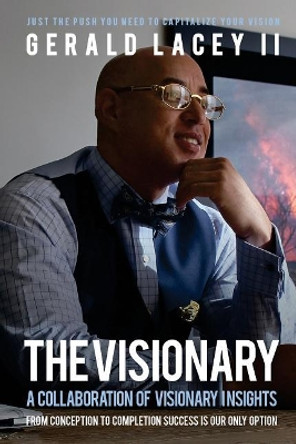Description
Influencer campaign under way, with endorsements and publicity expected from Wendell Berry, Barbara Kingsolver, Joel Salatin, Mary Oliver, Donald Hall, Terry Tempest Williams, Bill McKibben, Christian Wiman, Jerry Mander, Elliot Coleman, Malcolm Guite, Michael Pollan, Annie Dillard, and others Feature in Plough Quarterly magazine (circulation 15,000) Significant author presence on Plough properties: excerpts, shareables, author page Extensive promotion through Plough email and social channels (100,000 follower and subscribers) Significant advertising campaign on social media Book trailer using poems, songs, and historical photographs Partnerships with poetry organizations and foundations Giveaways on NetGalley, GoodReads, LibraryThing, and Amazon POP materials
About the Author
Farmer-poet Philip Britts was born in 1917 in Devon, England. Britts became a pacifist, joined the Bruderhof, and during World War II moved to South America. There, in 1949, he died of a rare tropical illness at the age of 31, leaving his wife, Joan, with three young children and fourth on the way. David Kline, an Amish organic farmer in Ohio, is the editor of Farming Magazine and author of three books: Letters from Larksong: An Amish Naturalist Explores His Organic Farm, Great Possessions: An Amish Farmer's Journal, and Scratching the Woodchuck: Nature on an Amish Farm. Jennifer Harries, a member of the Bruderhof, was born in Llansamlet Wales and now lives in New York.
Reviews
One of the most powerful books I've ever read. Alive with profound spiritual and practical insights, Britts's words are timeless. You will be deeply moved by his humble conviction expressed in thoughtful action. --Joel Salatin, author, Folks, This Ain't Normal
There is a deep sense of reality-true, eternal, and human reality-in Britts' work... Here was a man who clearly articulated and lived out his beliefs... a man who may have been quietly composing while hoeing, whose spirit ever sat at the feet of his Master while his body was at work. --Remembered Arts Journal
What to do with one's life? Britts answered this question as one who loved the land, its creatures, and its people. For those seeking a healthy and peaceful world, this book will be a provocation to a better way of living. --Norman Wirzba, author, Food and Faith
Britts's unpretentious style brings immediacy to his subjects, and Water at the Roots provides enough context about his life, and the challenges of building a community in an environmentally difficult region, to underscore what the author was up against. . . . It's a thorough book that illuminates an important but little-known writer. --Foreword Reviews
Britts's poems and musings offer a window into a life defined by clear Christian values of radical pacifism, love of neighbor, and care for the Earth. Britts provides a gentle corrective to modern impulses of acquisition and aggression, his ebullient verses always returning to wonder and awe at the natural world.... An inspiration for Christians and humanists seeking peace and purpose in a tumultuous world. --Publisher's Weekly
In spite of the many hardships Philip Britts and his community suffered, poetry flowed out of him like water from a spring. He was he a prolific writer, an astute observer of his natural surroundings, a steward of the mysteries of God, and a true landsman who lived the life he wrote about. He knew that human touch, kindness, love of land and neighbors, working with nature and the seasons, nurturing and not exploiting were things that matter. In his death-shortened years he lived a full and generous life. --David Kline, author of Letters from Larksong and Scratching the Woodchuck
Philip Britts died at thirty-one, but this collection of poems and insights shows the depth and richness of his wisdom during those shortened years. His writings are reminiscent of Wendell Berry's: they touch on the same themes of earth and faith, community and presence. It's a short but lovely read. --Gracy Olmstead, The American Conservative
There is much beauty in Britts's thoughts, and a quiet radicalism too....He warns that the worst possibility of progress would be to lose the organic connection with and intimate, tactile knowledge of the land: unlike "that indescribable sensation that comes, perhaps rarely, when one walks through a field of alfalfa in the morning sun, when one smells earth after rain, or when one watches the ripples on a field of wheat." That is the agrarian spirit, the spirit of Wendell Berry and so many localists everywhere. --Russell Arben Fox, Front Porch Republic
Book Information
ISBN 9780874861280
Author Philip Britts
Format Paperback
Page Count 179
Imprint Plough Publishing House
Publisher Plough Publishing House









